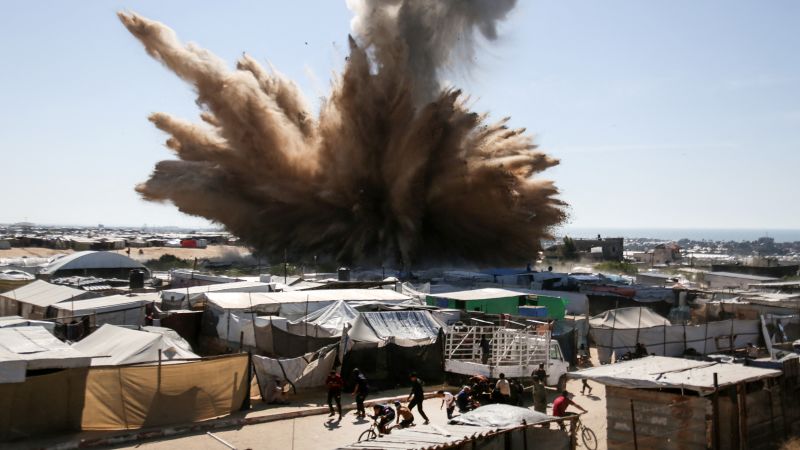Cairo Talks: Hamas Seeks Gaza Ceasefire with US Backing
The recent Cairo talks, bringing together representatives from Hamas and the Israeli government, have injected a glimmer of hope into the long-standing Israeli-Palestinian conflict. The discussions, facilitated by Egypt, center around securing a long-term ceasefire in Gaza, with a significant, albeit subtle, role played by the United States. This complex situation requires careful examination to understand the motivations, challenges, and potential outcomes.
Hamas's Strategic Shift: A Ceasefire as a Stepping Stone?
Hamas, the de facto governing authority in Gaza, has historically employed a strategy of armed resistance against Israel. However, the recent Cairo talks signal a potential shift in their approach. Faced with the devastation wrought by previous conflicts and the ongoing blockade of Gaza, Hamas appears to be prioritizing a ceasefire as a means to alleviate the dire humanitarian situation in the territory. This doesn't necessarily equate to a complete abandonment of their political goals, but rather a strategic recalibration.
The humanitarian crisis in Gaza is undeniable: Years of conflict and blockade have left the population struggling with limited access to essential resources, including food, water, and medical care. A lasting ceasefire offers the possibility of rebuilding infrastructure, fostering economic development, and improving the lives of Gazans.
However, internal pressures within Hamas are also at play: There are likely factions within the organization that hold differing views on the best path forward. Some may see a ceasefire as a betrayal of the armed struggle, while others recognize the urgent need for improved conditions in Gaza.
US Influence: A Quiet but Crucial Role
While not directly participating in the negotiations, the United States plays a crucial behind-the-scenes role. Its influence is exerted through various channels, including diplomatic pressure on Israel and financial support for humanitarian aid in Gaza. The US likely sees a stable ceasefire as vital for regional security and a potential stepping stone towards broader peace negotiations. However, the US approach must navigate a delicate balance: supporting a ceasefire while maintaining its strong relationship with Israel.
Israel's Perspective: Security Concerns and Political Considerations
For Israel, the primary concern is security. Any ceasefire agreement must guarantee the cessation of rocket attacks and other forms of violence emanating from Gaza. Beyond immediate security considerations, Israel also faces significant political challenges. The Israeli government must balance the desire for peace with the concerns of its own populace, particularly those living near Gaza. Public opinion, often swayed by security concerns and political polarization, plays a crucial role in shaping Israeli policy.
Challenges and Obstacles to a Lasting Peace
The path to a lasting ceasefire is fraught with obstacles. These include:
- Differing interpretations of the ceasefire terms: Hamas and Israel may have conflicting understandings of what constitutes a genuine ceasefire, leading to potential future misunderstandings and escalations.
- The issue of Palestinian prisoners: The release of Palestinian prisoners held by Israel is a sensitive issue that could significantly impact the success of negotiations.
- The long-term blockade of Gaza: The blockade remains a significant point of contention, and its continuation could undermine any ceasefire agreement.
- Internal political divisions: Political divisions within both Hamas and the Israeli government could hinder the process.
The Path Forward: Hope and Uncertainty
The Cairo talks represent a significant opportunity, albeit one fraught with challenges. A successful ceasefire could lead to a much-needed period of stability in Gaza, allowing for reconstruction and the gradual improvement of the humanitarian situation. However, a lasting peace requires addressing the root causes of the conflict, including the unresolved issues of borders, settlements, and the status of Jerusalem. The success of the Cairo talks and any subsequent agreements will hinge on the willingness of all parties to compromise and engage in good-faith negotiations. The international community, including the United States, has a crucial role to play in supporting this process and ensuring a lasting, just, and sustainable peace.
